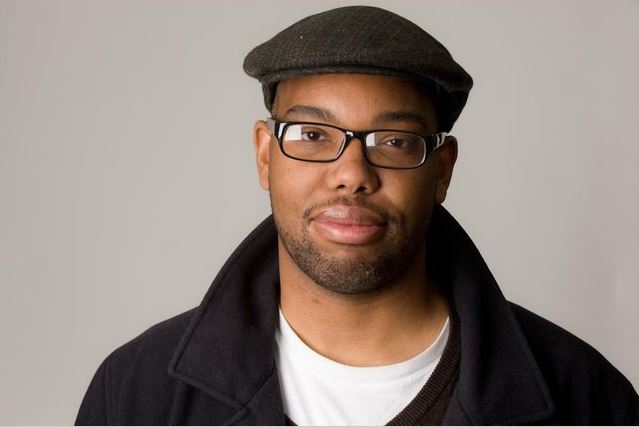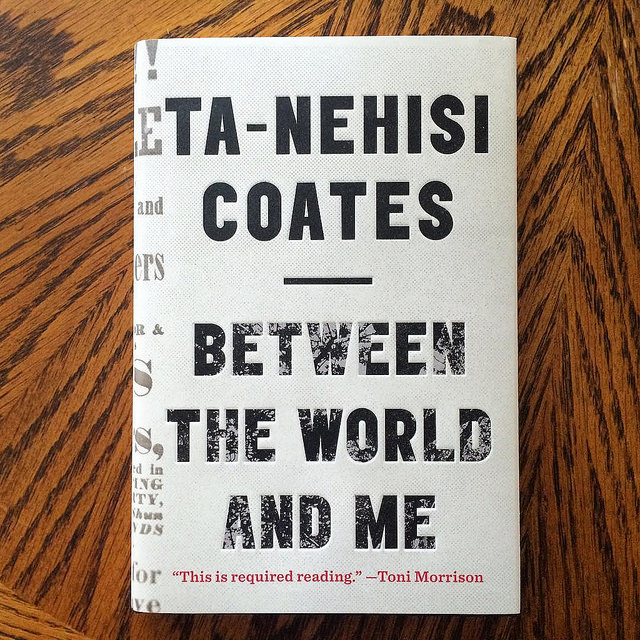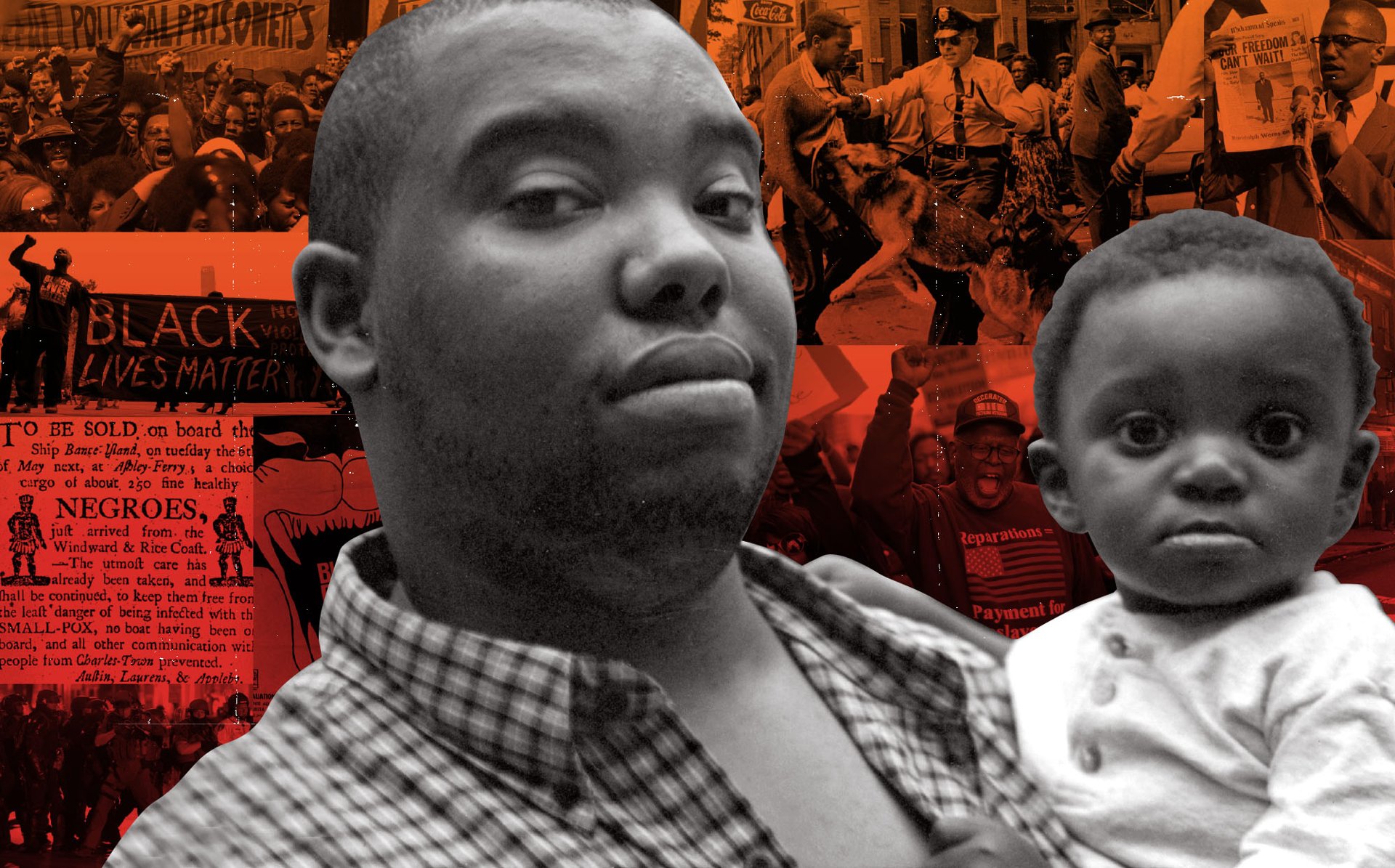
Ta-Nehisi Coates was born in Baltimore, Maryland, on September 30, 1975. He is the son of a former black panther member and a school teacher. Growing up in Baltimore, Coates saw firsthand the destruction of his community during the crack epidemic and the racial profiling occurring from police. From the difficult incidents that Coates grew up with, he would lash out at school disobeying the rules placed in school He believed that it was unnecessary to learn when the neighbor he was from was riddled with destruction. When Coates would retaliate, his family would make him write in order to express himself. This form of child-rearing made Coates interested in writing and later pursue a degree in English from Howard University. As a struggling writer, Coates had to balance multiple jobs as a journalist until he gained a job as a recurring journalist for The Atlantic. In 2015, Coates published his second novel Between the World and Me, which discussed the death of his friend to police brutality and the various forms of institutionalized racism. After publishing the novel dedicated to his son, many reviews praised the novel. According to Washington post, “ [Coates] is firing on all cylinders, and it is something to behold: a mature writer entirely consumed by a momentous subject and working at the extreme of his considerable powers at the very moment national events most conform to his vision."

In Between the World and Me, Coates focuses on the theme of racism and being a black man in America. In a time where black men are being killed by the hands of police, Coates uses his novel to offer advice to his teenage son. Coates uses the incidents of police brutality to warn his son of the potential dangers that he may face since police “have been endowed with the authority to destroy your body.” As a black man in America, Coates tells his son the struggle he had to face with the need to survive the inner city and how tireless he had become. This tiredness of defending one’s self from police brutality and crime makes the author fear “not just the violence of this world but the rules designed to protect you from it, the rules that would have you contort your body to address the block, and contort again to be taken seriously by colleagues, and contort again so as not to give police a reason.” With his ongoing struggle with an America not accommodating for black bodies, he warns his son not to give into the American dream- a dream of privilege- because it does realize the oppression blacks have faced. With the issue of racism, Coates incorporates police brutality but also the microaggressions and cultural differences. Coates discusses how white privilege has allowed whites to bypass certain issues and how despite the progress blacks make in America, they are always deemed as less than.

I find this novel to be beautiful because I am able to relate to the issues being discussed by Coates. While he does not give a direct solution to combatting racial problems in America, he does give the readers an eloquent and thoughtful discussion about the racial problem. I believe that Coates did not set out to solve the questions he posed in his book because he wanted the readers to grapple with the idea and formulate their own views. I liked how he did chastise another racial group for the racial problems in the United States but focused on how minorities should not worry heavily on making other racial groups aware of the injustice because “our moment is too brief. Our bodies are too precious. And you are here now, and you must live—and there is so much out there to live for, not just in someone else’s country, but in your own home.” While Coates does worry about the racial problems in the United State and the security of his son, he does realize that there are more things available to his son because he knows “what it means to grow up with a black president, social networks, omnipresent media, and black women everywhere in their natural hair.” Coates in his vagueness shows that people must struggle with the issue of racism in order to move forward.
I really enjoyed this book when I read it, and I think your summary of Coates' biography provides a great context for me to understand the text. Your selection of quotes is excellent. The most grabbing theme from the first half of the book was his discussion of the black body and how various institutional forces attempt to cage and/or harm the bodies of black Americans. The language is really visceral and reminds the reader of the real, raw, and physical effects of racism, especially in the context of the recent deaths of unarmed black men at the hands of police officers. Thanks for sharing, and I'm glad you picked up this book! Have you read Coates' Case for Reparations in The Atlantic? It got a lot of buzz when it was published and is another great, Coatesian history of race in America: http://www.theatlantic.com/magazine/archive/2014/06/the-case-for-reparations/361631/
ReplyDeleteThank you for your comment Mr. Apo, I really did enjoying reading this book, and I am looking forward to reading more books from Coates. I have not yet read Coates' Case for Reparations, but I will give you feedback once I read it.
DeleteAfter reading your blog and Mr. Apo's follow up comment, I really want to read this book. Institutionalized racism and police brutality are significant problems in the United States, and although this is true, I feel like I am not well educated about either issue. However, reading your very clear explanation of the themes definitely tells me that this book would be a good place to start. Like you said, I need to 'struggle with the idea of racism in order to move forward' and help end this issue in the United States.
ReplyDelete